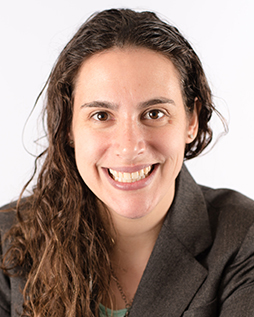
Nikki Usher is an Associate Professor at the University of Illinois. Her research focuses on news production in the changing digital environment, blending insights from media sociology and political communication. Her first book, Making News at The New York Times (University of Michigan Press, 2014) was the first booklength study of the US’s foremost newspaper in the Internet era and won the Tankard Award, a national book award from the Association for Education and Mass Communication in Journalism. Her second book, Interactive Journalism: Hackers, Data, and Code (University of Illinois Press, 2016), focused on the rise of programming and data journalism, and was a finalist for the Tankard Award, making Usher the first solo author to be a two-time finalist.
DJRG Fellow, December 2018
Title and abstract
The Place of News: Theorizing Beyond a Construct and The Case of Washington Political Journalism
When journalism studies research has looked at place, it has generally been from the perspective of how journalists create and shape the places around them. The conceit of the presentation (and forthcoming book, under contract with Columbia UP) is to flip the scholarship and the question around: how does place create journalism? Theoretically, place is discussed as both an actor/agent in the process of news construction, creating boundaries and opportunities for journalists. Place is also socially constructed, and the presentation will discuss some of the ways in which journalists engage with their built environments and their geographical locales when thinking about their work and when ultimately engaging in the routines of newswork. Drawing heavily from human geography and critical sociology, the project extends theory about place to journalism studies, and in doing so, provides a new schema for journalistic epistemology drawing from concepts of place. The role of place in making news is investigated through five different ways of thinking about place: place as a physical setting where life is lived and cultural meaning is enacted, place as structure that shapes, structures, and controls agency, place as a phenomenological, place as resource/capital, and place as scale.
This talk will bring to the forefront the importance of thinking about how the affordances of place influence how journalists do their work—from how they come to decide what counts as news to the very resources that enable them to do their work. The talk will also apply this theoretical extension to a case study of regional DC journalists, or journalists who come to Washington to cover news for their “hometown” newspaper. The position of these journalists in the wider political news ecosystem is increasingly fragile, particularly as the newspapers who employ them cut back on costs, with the DC bureau seen as an easy cut when wire stories or national coverage can conceivable replace the content of these reporters. Through fieldwork conducted in the US Senate press gallery and of the US Congress, 18 interviews with DC journalists, and a cultural capital analysis of the 90 correspondents who remain in this position after cutbacks, the talk explores the nature of place as practice. When thinking about place as practice, then, I look at that intersection between the individual and the socio-structural level, invoking the idea of Bourdieu’s habitus – in this sense, someone’s tastes and dispositions, their cultural capital, their class status, their education, and more generally, the place that they occupy within the larger field of power. It is my contention that these regional journalists serve as perhaps the last crucial link between what goes on in Washington and what goes on back home, the actual embodiment of the bridge between beltway and heartland.
There are three key concerns to think about how the place of Washington enables the practice of regional journalism. First, and most obviously, being in Washington allows regional journalists to witness and to watchdog from a first-hand vantage point that comes from being there. Second, there is also a more subtle way in which these regional journalists serve a critical and likely unreplaceable within the larger national political news ecology—as the stories and scandals filter up from regional journalists to national concerns. Third, there is the unique relationship that these regional journalists have with their elected officials, which generally results in greater access and more specific attention than the opportunities journalists working with national outlets get to have. Through this case, I aim to show how place can be thought of as practice and underscore the importance of centering place at the crux of our analysis of newsmaking.
Selected publications
- Usher, N. (2016). Interactive news: Hackers, data, and code. Urbana: University of Illinois Press. (first chapter: https://www.press.uillinois.edu/books/catalog/53paw9sp9780252040511.html
- Usher, N. (2014). Making news at The New York Times. Ann Arbor: University of Michigan Press.
- Usher, N., Holcomb, J., and Littman, J. (2018). Twitter makes it worse: Political journalists, gendered echo chambers, and the amplification of gender bias. International Journal of Press Politics , 17 (1), 100–21.
- Usher, N. (2018). Re-thinking trust in the news: A material approach through “objects of journalism.” Journalism Studies, 19 (4), 564-578. Usher, N. (2017). Venture-backed news startups and the field of journalism: Challenges, changes, and consistencies. Digital Journalism, 5 (9), 1116-1133